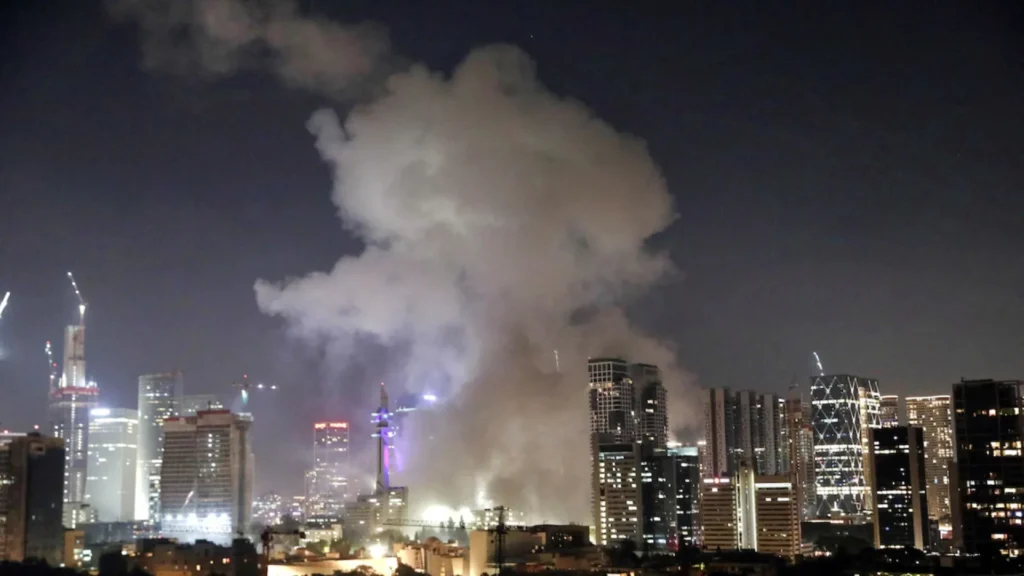A dangerous new phase of conflict is unfolding in the Middle East as Israel and Iran have exchanged four waves of strikes since early June (Israel Hits Iran), sparking fears of a prolonged regional war. The most significant attack so far occurred on June 13, when Israel launched a large-scale airstrike targeting top Iranian military and political figures, including Ali Shamkhani, a key adviser to Iran’s Supreme Leader and a major player in U.S.-Iran nuclear negotiations.
The Israeli offensive marks one of its boldest moves since the Iran-Iraq war (Israel Hits Iran), and reflects a sharp escalation in its strategy against Iran’s nuclear ambitions. While Israeli authorities claim the strikes are aimed at curbing Iran’s nuclear threat, the actual impact remains debatable.
What Is Israel Trying to Achieve?
Though Israel has long accused Iran of moving closer to building nuclear weapons, its claims often contradict U.S. intelligence and assessments by the International Atomic Energy Agency (IAEA). Instead of striking Iran’s most fortified nuclear sites like Fordow, which lies deep underground, Israel has focused on eliminating key Iranian leaders and damaging conventional military assets.
By targeting the political leadership involved in nuclear talks, Israel may be aiming to disrupt diplomatic progress and weaken Iran’s internal command structure. Experts say these actions may also bolster U.S. leverage in ongoing nuclear negotiations, especially since hardline Iranian voices have now been silenced.
However, analysts warn that Israel’s military actions alone are unlikely to dismantle Iran’s nuclear capabilities, which have withstood sabotage and sanctions for years.
Iran’s Response and Calculated Restraint
Despite suffering leadership losses and damage to vital infrastructure, Iran has managed to launch limited but strategic counterattacks, including a strike on Israel’s Bazan oil refinery in Haifa, a crucial facility for the Israeli military.
So far, Iran has held back from attacking U.S. bases or diplomatic missions, signaling a desire to avoid broader confrontation with Washington. Groups like Hezbollah, the Houthis, and Iraqi militias aligned with Iran have also largely maintained ceasefires with the U.S., though they continue to target Israeli assets.
The Iranian government, now led by moderate President Masoud Pezeshkian, had entered talks with the U.S. in hopes of lifting crippling economic sanctions. But with Israel’s latest strikes killing senior negotiators, conservative factions within Iran are calling for tougher stances and questioning the legitimacy of further engagement with the West.
Global Reactions: Divided and Delicate
Western reactions, particularly from the U.S. and Europe, have largely emphasized concerns about Iran’s nuclear program, while downplaying or avoiding direct criticism of Israeli strikes. This one-sided narrative has angered Iran and its allies.
On the other hand, Arab Gulf nations, including Saudi Arabia, have expressed strong condemnation of Israel’s attacks and called for respect for Iranian sovereignty – signaling a shift in regional dynamics.
What’s Next?
Despite heightened tensions, Iran has not shut down the Strait of Hormuz, a key global oil passageway – a move that would provoke U.S. military action and destabilize its own fragile partnerships.
Observers believe Iran is weighing its options carefully. On one hand, developing nuclear capabilities could act as a deterrent, but on the other, pursuing diplomacy may prevent a wider war and offer relief from economic isolation.
Meanwhile, Israel appears committed to a long-haul strategy of attrition and disruption, but its maximum objectives cannot be achieved without direct U.S. military involvement – a step President Trump is reluctant to take, despite his administration’s tacit support of Israel’s actions.
Conclusion
As airstrikes continue and diplomatic backchannels scramble for relevance, the world watches anxiously. The risk of miscalculation remains high, and unless meaningful talks resume, the Middle East could face another prolonged conflict with devastating global consequences.
Source: Indian Express
Read More : Middle East on the Brink: Israel Strikes Iran’s Nuclear Sites, World Holds Its Breath
